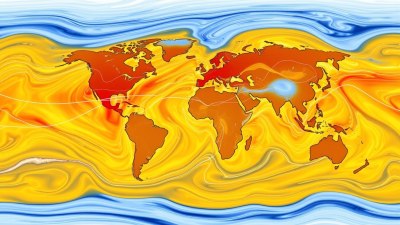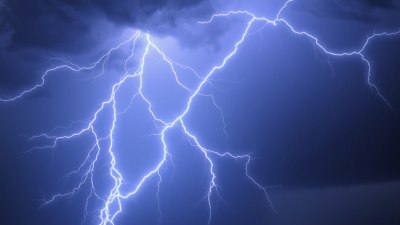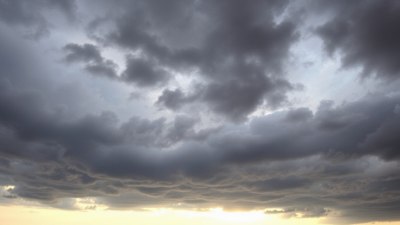How to Grill During a Heatwave Without Becoming the Main Course
Discover essential tips to enjoy grilling safely during a heatwave without overheating.

This image was created with the assistance of Freepik
Grilling in the summertime is a cherished tradition for many, offering a chance to enjoy the outdoors and savor delicious food. However, when a heatwave strikes, the idea of firing up the grill can seem daunting. The combination of extreme heat and open flames can present challenges, mainly ensuring that you don’t turn into the main course while trying to cook. Below are some practical tips to help you grill safely and enjoyably during a heatwave.
Understanding Heatwaves
A heatwave is typically defined as a prolonged period of excessively hot weather, which may be accompanied by high humidity. Such conditions can be dangerous, making it essential to prioritize your health while grilling. On days when the temperature skyrockets, it's crucial to be mindful of hydration, sun exposure, and heat-related illnesses. Understanding these factors can greatly enhance your grilling experience.
Choose the Right Time to Grill
Timing is everything during a heatwave. The hottest part of the day often occurs between 10 a.m. and 4 p.m. To minimize exposure to extreme heat, opt to grill during cooler times, such as late afternoon or early evening when temperatures begin to drop. This way, you can enjoy the process of grilling without the heat weighing you down.
Selecting the Best Location
When it comes to grilling, location matters. If possible, position your grill in a shaded area to prevent excessive heat buildup. This can be under a tree, an awning, or any other structure that mitigates direct sunlight. Always ensure the location is safe and away from flammable materials, while also providing some respite from the sun.
Hydration is Key
Stay hydrated before, during, and after your grilling session. Heat can quickly lead to dehydration, which results in fatigue and heatstroke. Keep a cooler filled with refreshing drinks nearby, including water, electrolyte-rich beverages, and non-alcoholic options. Avoid alcohol, which can exacerbate dehydration. Drinking plenty of fluids will help you maintain energy levels and enjoy the grilling experience.
Plan Your Menu Wisely
In the sweltering heat, the last thing you want to do is slave over a hot grill for hours. Plan your menu with quick-cooking meals in mind. Lean meats, seafood, and seasonal vegetables grill quickly and are typically healthier choices. Prepare marinades in advance to significantly cut down on cooking time and add flavors without extreme heat exposure. Additionally, you can opt for side dishes that require minimal preparation or can be prepared ahead of time, reducing the overall time spent outdoors.
Utilize a Meat Thermometer
Cooking meat thoroughly is crucial for food safety, especially when grilling. A meat thermometer is an invaluable tool for ensuring your food is cooked to perfection without overexposing yourself to heat. Also, cooking meat to the recommended internal temperature reduces the risk of foodborne illness. For most meats, a final internal temperature of 165°F is safe for poultry, while beef steaks and fish should reach at least 145°F.
Use Two-Zone Cooking
Two-zone cooking involves setting up your grill to create different heat zones, which can help minimize flare-ups and allow for more controlled cooking. On a gas grill, this means keeping one side on high heat for searing and the other on low heat for cooking through. On a charcoal grill, arrange the coals to one side. This method allows you to sear meats and then move them to the cooler side to finish cooking without exposure to direct heat. It’s an efficient technique that helps retain moisture and flavor.
Know Your Grill
Before even starting the grill, ensure it is clean and free of any grease or debris that could cause flare-ups. Understand your grill’s capabilities and adjust the temperature settings appropriately. Different models can behave differently under heat, so becoming familiar with how yours operates will help prevent overheating and ensure a successful grilling session.
Protect Yourself from the Sun
Even when grilling, it's essential to protect your skin from harmful UV rays. Wear a wide-brimmed hat, light-colored and breathable clothing, and sunscreen with adequate SPF. The cumulative effect of the sun during grilling can lead to burnt skin or heat exhaustion. Taking these protective measures allows you to focus on the food without worrying about sunburn.
Incorporate Fun Activities
Grilling can also be a social activity. Invite friends or family to join in on the fun, dividing up tasks such as meat preparation, grilling, and setting the table. While others are busy with their assigned roles, you can take breaks to stay cool and hydrated. Enjoying good company can help distract you from the rising temperatures, making the grilling experience more enjoyable.
Consider Alternative Cooking Methods
On extremely hot days, you might find grilling out of the question. Consider alternative cooking methods that provide the same delicious results without the hassle of a hot grill. Indoor grilling appliances, such as electric grills or grilling pans, can be used to achieve similar outcomes without exposing yourself to excessive heat. Moreover, cooking techniques like broiling in your oven or preparing meals in a slow cooker can yield fantastic results while keeping your kitchen cool.
Embrace No-Cook Recipes
When temperatures climb uncomfortably high, don’t hesitate to embrace no-cook recipes. There are countless delicious salads, cold desserts, and other meal options that require no grilling or stovetop cooking. Prepare dishes featuring fresh seasonal produce, grains, and proteins that can be enjoyed chilled, allowing you to take a break from the heat while still enjoying great flavors.
Proper Grilling Recovery
Once your grilling is done, it's essential to cool down and recover from the heat you're exposed to. Move into a shaded area or air-conditioned space, drink plenty of water, and consider taking a cool shower or relaxing with a fan. It's vital to allow your body to return to a normal temperature and avoid overheating for extended periods, especially when the humidity is high.
Be Mindful of the Environment
While grilling, you should also consider its impact on the environment. This is particularly meaningful during heatwaves, where the potential for wildfires is significantly increased. Ensure that your grill is clean and well-maintained to prevent accidental fires. Always have a plan in place for extinguishing flare-ups and ensure your grill is completely turned off after use.
Grilling during a heatwave can be enjoyable if approached correctly. By selecting the right time, managing hydration, planning your menu wisely, and employing safety measures, you can savor succulent grilled dishes without the fear of becoming the main course. Enjoy the culinary experience while staying cool and safe throughout the hot summer months!











